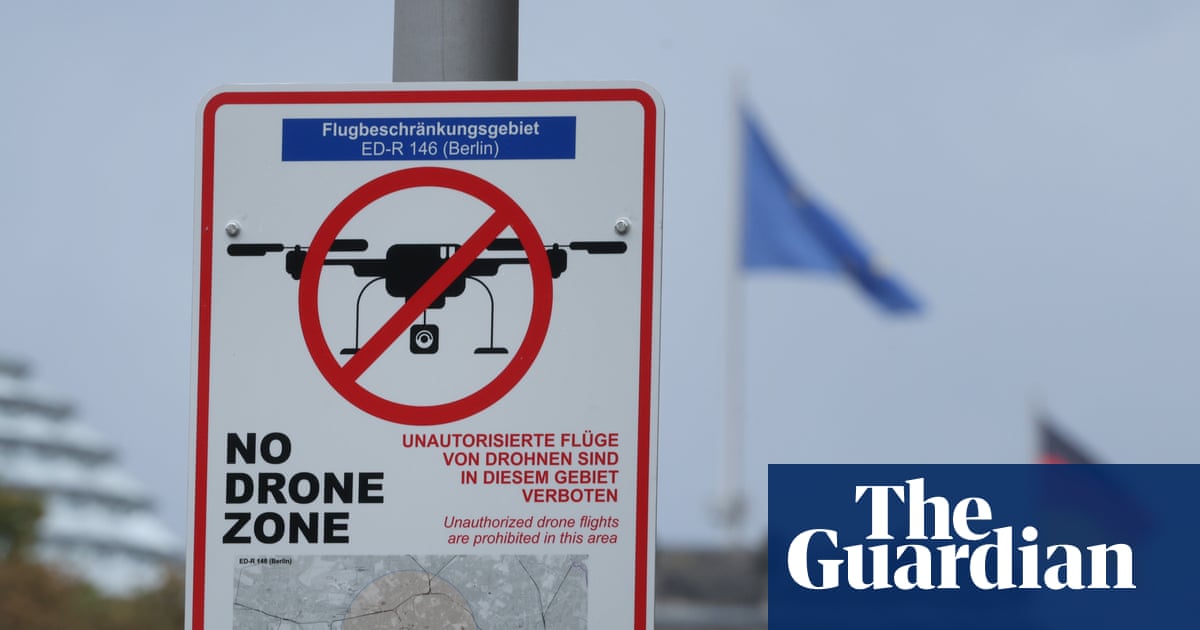German police will be allowed to shoot down drones under new legislation aimed at increasing safety after a spate of sightings across Europe.
Rogue drones, which have not been attributed to a specific owner, have disrupted air traffic across the continent in recent weeks. Some have been spotted over hospitals, canals, armaments factories and other sites of critical infrastructure in Germany.
Leaders from Germany and elsewhere say they are wrestling with how to deal with the relatively new challenge and believe the drones originated from Russian controllers, who are using them as part of the Kremlin’s hybrid war on the continent.
On Wednesday, the German cabinet agreed on a draft law authorising police to down drones that pose an immediate threat. The legislation now needs parliamentary approval.
Alexander Dobrindt in Berlin on 8 October after announcing the counter-drone unit. Photograph: Sean Gallup/Getty Images
In a post on social media, the chancellor, Friedrich Merz, said the legislation was meant to increase security in Germany. “Drone incidents threaten our safety,” he said. “We will not allow that. We are strengthening the powers of the federal police so that drones can be detected and intercepted more quickly in future.”
The law has been written swiftly in response to recent incidents including drone sitings over Munich airport last Thursday, which caused the cancellation of dozens of flights, stranding thousands of passengers.
The origin of the drones has yet to be identified. Authorities said they were not armed and were being used for surveillance. Merz has said he believes Russia was behind that and other similar incidents.
Once passed, the legislation would bring Germany in line with other countries such as France, Britain, Romania and Lithuania, which have extended the powers of their security forces to take out drones that are unlawfully in their airspace.
The interior minister, Alexander Dobrindt, announced the creation of a dedicated counter-drone unit within the federal police. It will hold regular consultations with Ukraine and Israel, given their extensive experiences in using the latest drone technology.
Dobrindt said the new legislation would help to clarify which authorities had the power to carry out which action against the drones. Police would be authorised to deal with smaller drones flying at about tree level, whereas the military would be expected to deal with larger and more powerful machines, he said.
This year up to the end of September, Germany has recorded 172 drone-related interruptions to air traffic, compared with 129 in the same period last year and 121 in 2023, according to the German Aviation Security organisation (DFS).
